Stone kitchen countertops are among the most sought-after features in modern kitchens, offering a blend of natural beauty, durability, and timeless appeal. These countertops are available in various stone types, each with its unique characteristics, colors, and textures, making them a versatile choice for different design styles. Whether you prefer the luxurious veining of marble, the rugged durability of granite, the elegant consistency of quartz, or the rustic charm of soapstone, stone countertops can elevate the aesthetic and functional aspects of your kitchen. Their ability to complement a wide range of cabinet colors, hardware, and appliances makes them a staple in both contemporary and traditional kitchen designs.
One of the most popular choices for stone countertops is granite, known for its unparalleled durability and wide array of colors and patterns. Granite is an igneous rock composed mainly of quartz, feldspar, and mica, which gives it its signature grainy texture and natural beauty. Each slab of granite is unique, with variations in color and veining that create a one-of-a-kind surface. This individuality allows homeowners to select a slab that perfectly matches their kitchen’s design, whether they are aiming for a bold statement piece or a more subtle, harmonious look. Granite countertops are also highly resistant to heat, scratches, and stains, making them an excellent choice for busy kitchens.
Marble countertops, on the other hand, are prized for their luxurious appearance and smooth, cool surface. This metamorphic rock is formed from limestone subjected to high pressure and temperature, resulting in the characteristic veining and soft, white-to-gray color palette. Marble exudes elegance and is often associated with high-end kitchens and bathrooms. While marble is undoubtedly beautiful, it requires more care than other stone options due to its porous nature and susceptibility to staining and etching from acidic substances. Homeowners who choose marble must be diligent with maintenance, including regular sealing and immediate cleanup of spills, to preserve its pristine appearance.
Quartz countertops have gained popularity in recent years as a low-maintenance alternative to natural stone. Unlike granite and marble, quartz is an engineered stone made from crushed quartz mixed with resin and pigments. This manufacturing process results in a non-porous surface that is highly resistant to stains, scratches, and bacteria. Quartz countertops offer consistent patterns and colors, making them an attractive option for those who prefer a uniform look. Additionally, because quartz is man-made, it can be produced in a wide range of colors, including options that mimic the appearance of natural stones like marble and granite. The durability and low maintenance of quartz make it a practical choice for families and those who prefer a worry-free kitchen surface.

Soapstone is another natural stone option that has been gaining traction, particularly in rustic and farmhouse-style kitchens. This metamorphic rock, composed primarily of talc, chlorite, and magnetite, has a softer feel and a matte finish that sets it apart from the polished surfaces of granite and quartz. Soapstone is known for its rich, deep colors, typically ranging from gray to green, and its ability to develop a patina over time. This natural aging process adds character to the stone, giving it a unique, lived-in look. Soapstone is also highly resistant to heat and chemicals, making it a practical choice for those who do a lot of cooking and food preparation. However, its softer nature means it is more prone to scratches and dents, although these can often be sanded out or left to contribute to the stone’s rustic charm.
Limestone and travertine are other options for stone countertops, offering a more subtle and earthy appearance compared to granite and marble. These stones are both forms of sedimentary rock, with travertine being a type of limestone that forms in mineral springs. Limestone countertops typically have a soft, warm tone with muted patterns, making them an excellent choice for kitchens that aim for a calm, natural aesthetic. Travertine, on the other hand, often features more pronounced textures and patterns, including the characteristic pitted surface that can be filled or left natural. Both limestone and travertine are more porous than granite and quartz, requiring regular sealing to protect against stains and moisture damage. Their softer nature also makes them more susceptible to scratches and wear, but with proper care, they can offer a beautiful and unique countertop surface.
One of the advantages of stone countertops is their ability to enhance the resale value of a home. Stone surfaces are often seen as a premium feature that adds a sense of luxury and durability to the kitchen. Homebuyers appreciate the long-lasting nature of the stone and the investment it represents in the quality of the home. Additionally, the natural beauty and uniqueness of stone can make a kitchen stand out, offering a focal point that can be both functional and visually stunning. Whether renovating a kitchen for personal enjoyment or preparing a home for sale, choosing stone countertops can be a wise investment that pays off in both aesthetic appeal and financial returns.
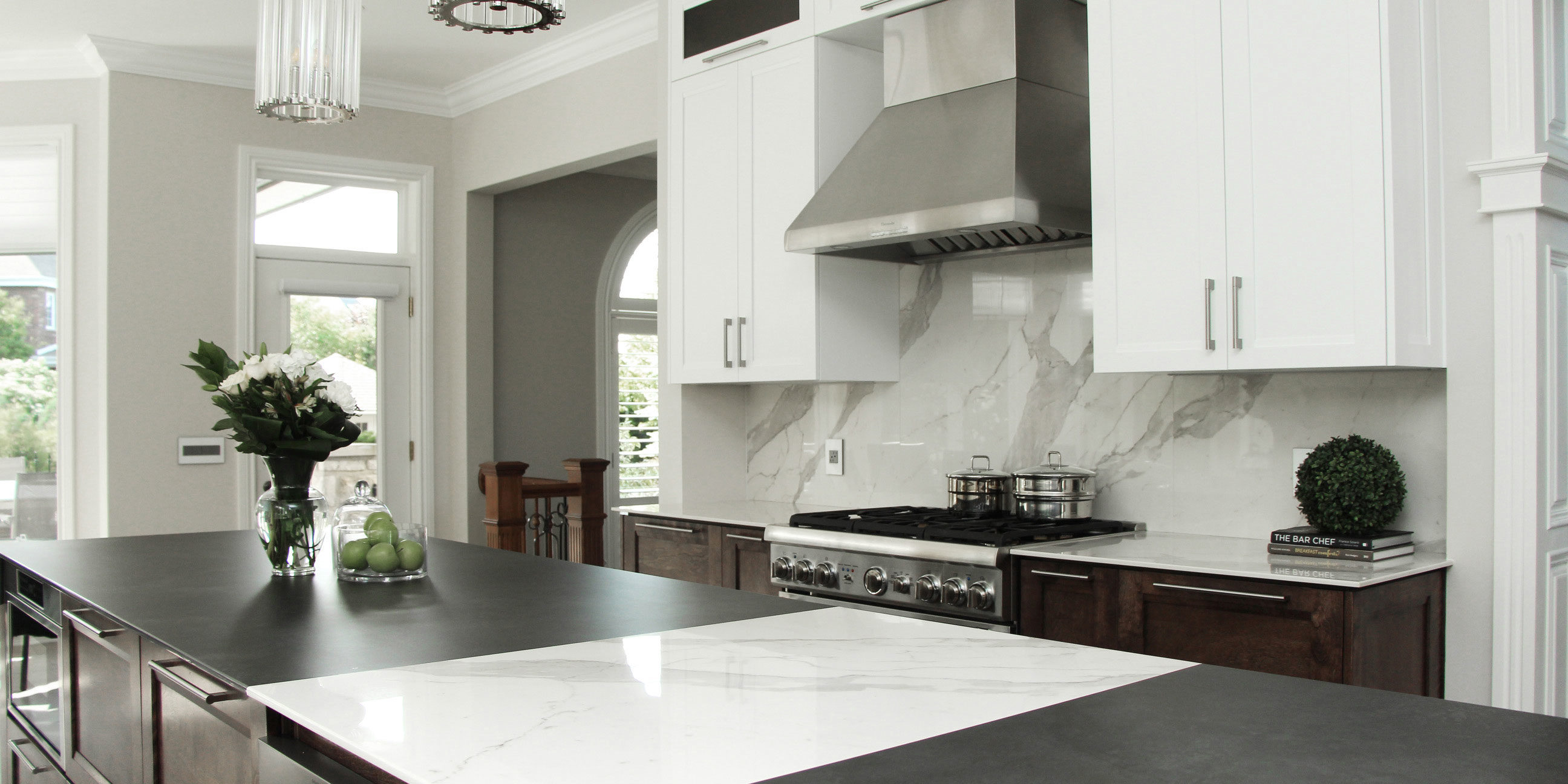
Another benefit of stone countertops is their environmental sustainability, particularly when sourced from local quarries or suppliers who practice responsible extraction methods. Natural stone is a durable material that can last for decades, reducing the need for replacement and minimizing waste. Additionally, some stone types, like granite and quartzite, require less processing and fewer chemical treatments compared to other countertop materials, resulting in a lower environmental impact. For homeowners concerned with sustainability, selecting a stone that is locally sourced and responsibly produced can contribute to a more eco-friendly kitchen design.
Despite the many benefits of stone countertops, they are not without their challenges. The installation process can be complex and requires professional expertise to ensure the countertops are properly supported, leveled, and sealed. Stone is a heavy material, and the cabinets and supports must be reinforced to bear the weight. Additionally, the seams between slabs must be carefully aligned and filled to create a seamless appearance. Improper installation can lead to issues like cracking, uneven surfaces, and water damage, so it’s crucial to work with a reputable contractor who has experience with stone countertops.
Maintenance is another important consideration for stone countertops. While some stones, like quartz, are virtually maintenance-free, others, like marble and limestone, require regular sealing and careful cleaning to prevent stains and damage. Acidic substances, like citrus juice, vinegar, and wine, can etch the surface of marble and other calcite-based stones, leaving dull spots or discoloration. To protect these surfaces, homeowners must be diligent about wiping up spills immediately and using cutting boards, trivets, and coasters to prevent direct contact with potentially damaging substances. Regular cleaning with a pH-neutral cleaner and periodic resealing will help maintain the stone’s beauty and integrity over time.
In terms of design, stone countertops offer endless possibilities. Whether you prefer the dramatic veining of marble, the bold patterns of granite, or the subtle elegance of soapstone, there is a stone to match your aesthetic. Stone countertops can be paired with a variety of cabinet styles, from sleek, modern designs to more traditional, ornate options. The versatility of stone allows it to complement a wide range of kitchen designs, whether you’re aiming for a minimalist, contemporary look or a warm, rustic feel. Additionally, stone can be finished in different ways, from polished and honed to leathered or brushed, each offering a unique texture and appearance that can enhance the overall design of the kitchen.

Cost is another factor to consider when choosing stone countertops. While they are generally more expensive than other materials like laminate or tile, the investment is often justified by the durability, beauty, and added value they bring to a home. The cost of stone countertops can vary widely depending on the type of stone, the complexity of the installation, and any custom features, such as edge profiles or integrated sinks. Homeowners should consider their budget, design goals, and long-term plans when selecting stone countertops, as the initial investment can pay off in terms of longevity and resale value.
One of the latest trends in stone countertops is the use of mixed materials, such as combining stone with wood, metal, or glass elements to create a unique and personalized kitchen design. For example, a kitchen might feature a granite island with a wood inlay or a marble countertop with a metal edge. This mix of materials can add texture, contrast, and visual interest to the kitchen, making it a standout space. Additionally, using different materials in different areas of the kitchen, such as a soapstone perimeter with a quartz island, can create a dynamic and functional design that caters to different needs and activities.
Stone kitchen countertops offer a combination of beauty, durability, and versatility that makes them a popular choice for homeowners and designers alike. Whether you choose granite, marble, quartz, soapstone, or another stone, these countertops can enhance the aesthetic appeal and functionality of your kitchen. With proper care and maintenance, stone countertops can last for decades, making them a worthwhile investment in your home. However, it’s important to consider factors like cost, maintenance requirements, and installation challenges when selecting the right stone for your kitchen. By carefully weighing these factors, you can choose a stone countertop that meets your needs and enhances the overall design of your kitchen.
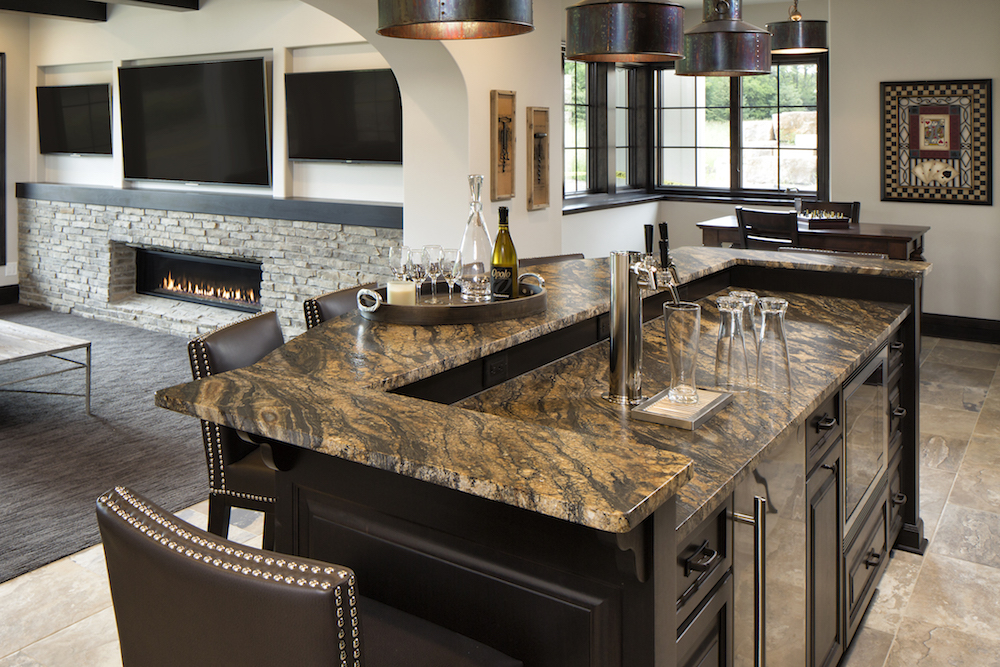
Common Mistakes to Avoid
When choosing and installing stone countertops, there are several common mistakes to avoid to ensure a successful outcome. One of the most significant mistakes is selecting a stone based solely on appearance without considering its durability and maintenance requirements. For example, while marble is beautiful, it may not be the best choice for a high-traffic kitchen due to its susceptibility to staining and etching.
Another mistake is failing to properly seal the stone, especially for porous materials like marble, limestone, and travertine. Without proper sealing, these stones can absorb liquids and stains, leading to discoloration and damage over time. Additionally, improper installation, such as failing to reinforce cabinets or align seams correctly, can lead to structural issues and a less-than-perfect finish.
Finally, neglecting regular maintenance, such as resealing and using appropriate cleaning products, can reduce the lifespan and beauty of stone countertops. By being aware of these common pitfalls, homeowners can enjoy the full benefits of their stone countertops for many years.
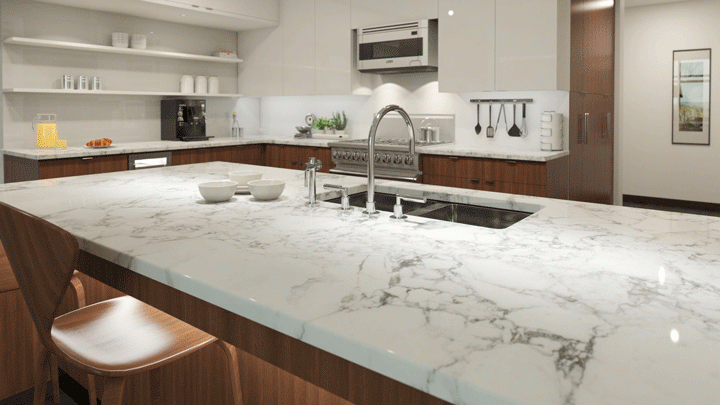
How often should I seal my stone countertops?
The frequency of sealing stone countertops depends on the type of stone and the amount of use the countertop receives. Granite and quartzite typically require sealing once a year, while more porous stones like marble, limestone, and travertine may need sealing every six months. To determine if your countertop needs resealing, you can perform a simple water test: place a few drops of water on the surface and see if it beads up or is absorbed into the stone. If the water is absorbed, it’s time to reseal. Regular sealing helps protect the stone from stains and moisture damage, ensuring it remains beautiful and functional.
Are stone countertops heat-resistant?
Most stone countertops, particularly granite and quartzite, are highly heat-resistant and can withstand hot pots and pans without damage. However, it’s still advisable to use trivets or hot pads to protect the surface from extreme temperatures, especially for more sensitive stones like marble or limestone. Sudden temperature changes can cause thermal shock, potentially leading to cracks or discoloration in the stone. Additionally, while quartz countertops are heat-resistant, the resin used in their manufacturing can be damaged by direct heat, so it’s important to take precautions to avoid placing hot items directly on the surface.
Can stone countertops be repaired if they get damaged?
Yes, stone countertops can often be repaired if they suffer damage such as cracks, chips, or stains. Small chips or cracks can typically be filled with color-matched epoxy or resin, while stains can be treated with poultices or specialized stone cleaners. In cases of more extensive damage, such as deep cracks or large chips, professional restoration may be required to repair and refinish the surface. It’s important to address any damage as soon as possible to prevent it from worsening. With proper care and timely repairs, stone countertops can maintain their beauty and functionality for many years.
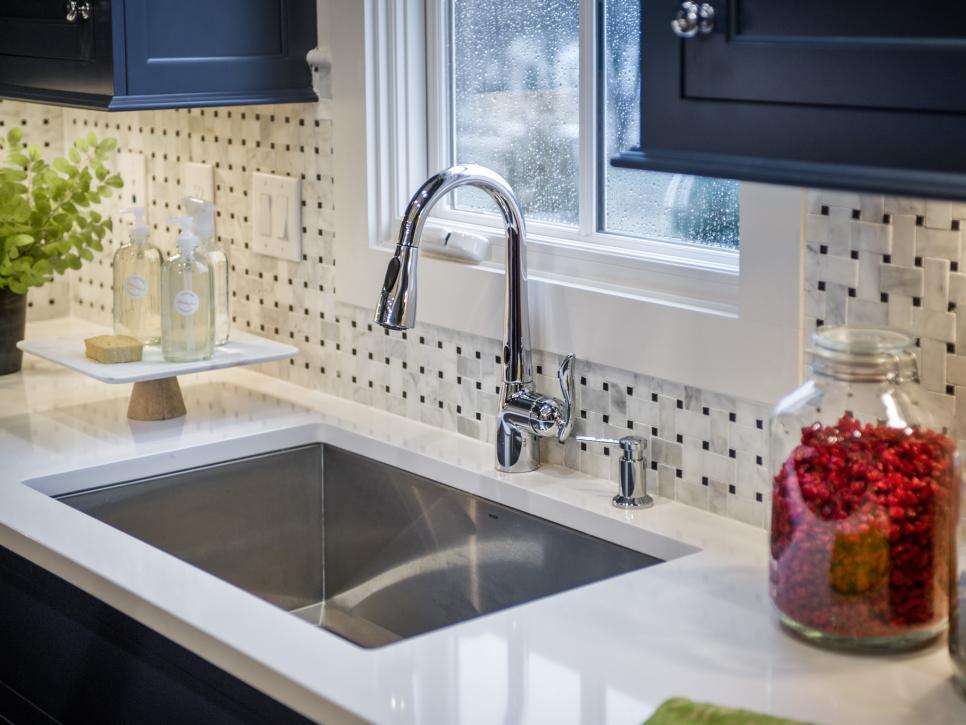
How do I clean and maintain my stone countertops?
Cleaning and maintaining stone countertops is relatively straightforward but requires some attention to detail. Daily cleaning should be done with a pH-neutral cleaner or mild soap and water to avoid damaging the sealer or the stone itself. Avoid using acidic or abrasive cleaners, which can etch the surface or remove the protective sealant. For stones like marble or limestone, it’s important to wipe up spills immediately to prevent staining or etching. Regularly resealing the countertops, as needed, will help maintain their resistance to stains and moisture. By following these maintenance practices, you can keep your stone countertops looking their best.
Are there any environmental concerns with stone countertops?
Stone countertops can be an environmentally friendly choice, especially if the stone is sourced locally and extracted using sustainable practices. Natural stone is a durable material that can last for decades, reducing the need for replacement and minimizing waste. Additionally, some stone types, like granite and quartzite, require minimal processing, resulting in a lower environmental impact. However, the environmental impact of stone countertops can vary depending on factors such as transportation, quarrying methods, and the use of sealants and chemicals. Homeowners concerned with sustainability should look for stone suppliers who prioritize eco-friendly practices and consider the overall lifecycle of the material.
Can I install stone countertops myself, or should I hire a professional?
Installing stone countertops is a complex and labor-intensive process that is best left to professionals. Stone slabs are heavy and require precise cutting, leveling, and sealing to ensure a proper fit and finish. Improper installation can lead to issues such as cracks, uneven surfaces, and water damage. Additionally, stone countertops often require reinforced cabinets and supports to bear the weight. Professional installers have the experience and tools necessary to handle these challenges and ensure the countertops are installed correctly. While DIY installation may save money upfront, hiring a professional can prevent costly mistakes and ensure a high-quality result.
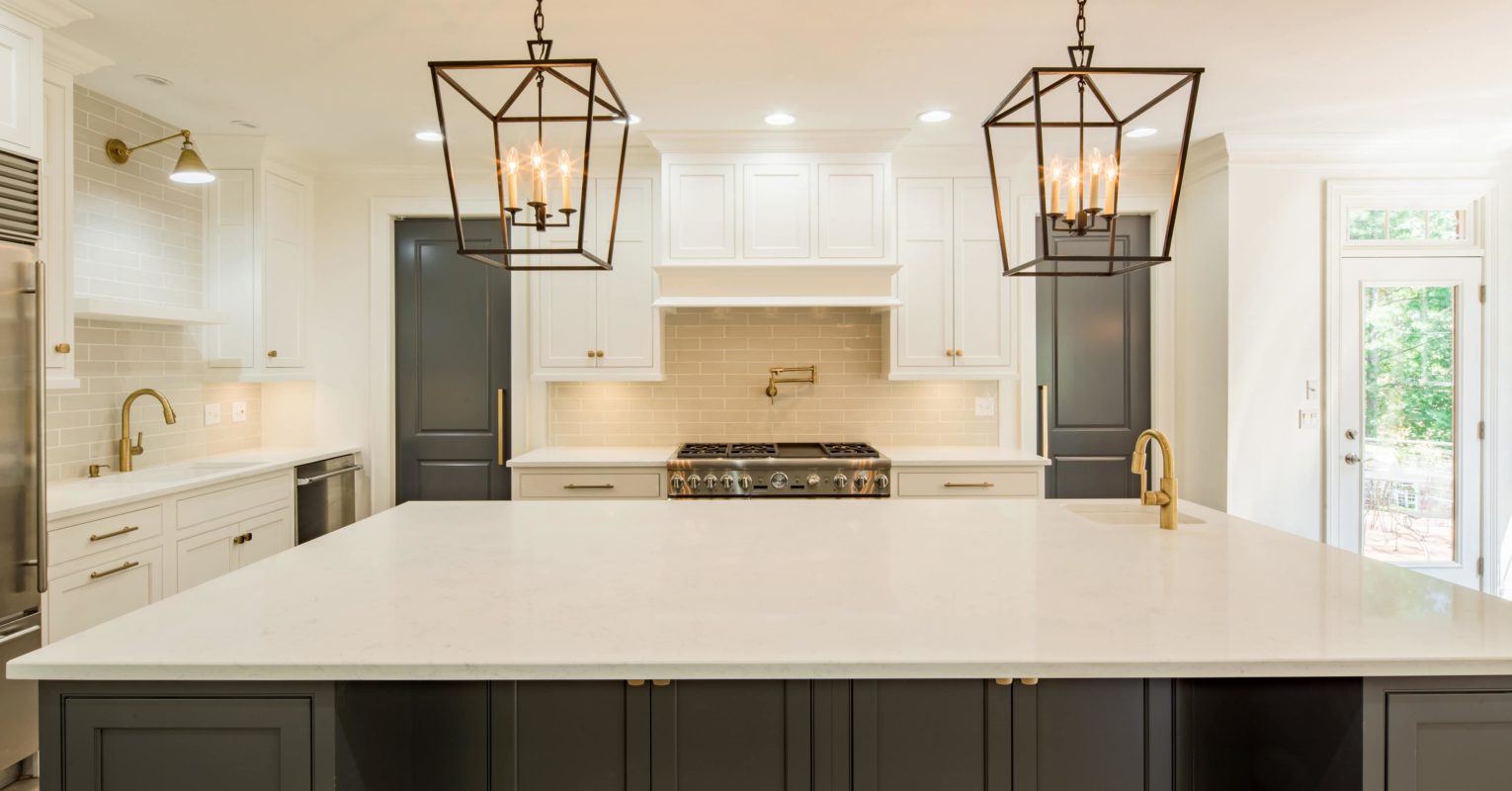
Stone Slab Countertops – The Best Types of Countertops
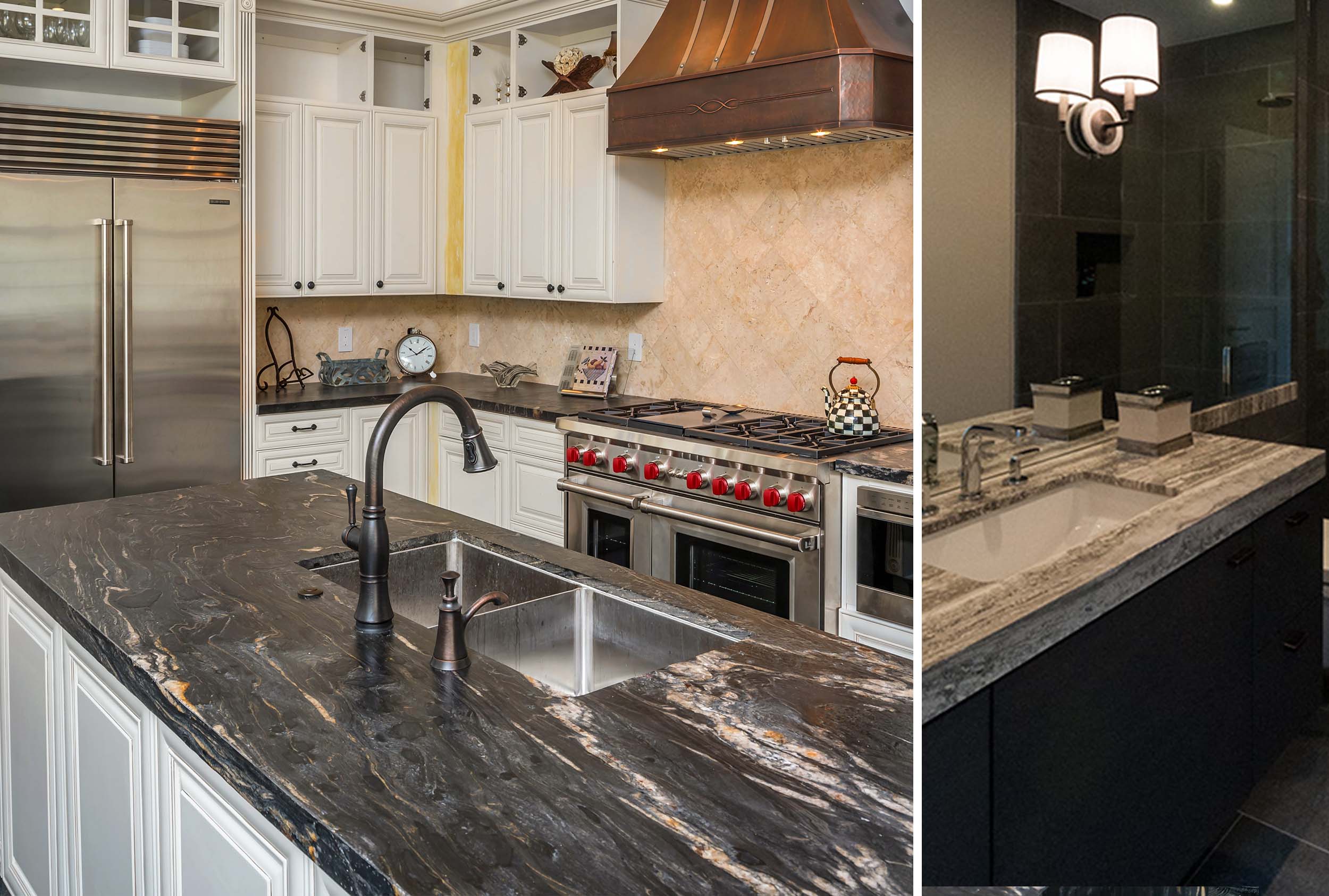
Related articles: